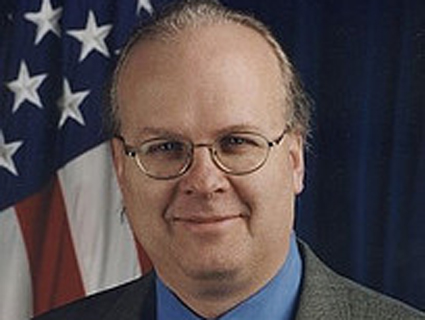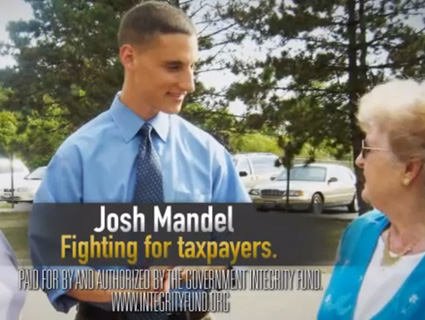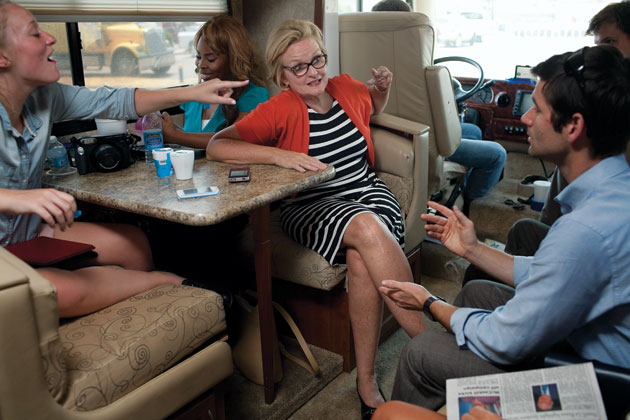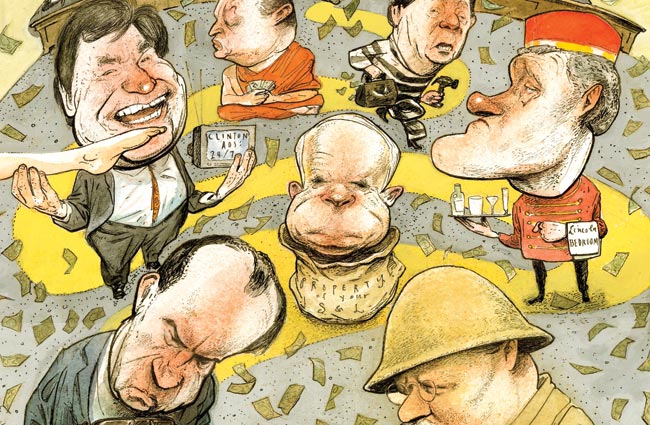
Karl Rove.<a href="http://www.flickr.com/photos/42256419@N08/5567287795/sizes/s/in/photostream/">Fulton County Republican Party</a>/Flickr
Tuesday was a good day for Karl Rove’s Crossroads GPS, the US Chamber of Commerce, and the other dark-money groups spending tens of millions to oust President Obama and elect Republicans in the 2012 elections. A federal court reversed a lower court decision from March compelling 501(c)4 nonprofit groups to reveal their donors if they run certain types of TV or radio advertisements close to Election Day—namely, issue ads that mention a candidate without urging viewers to vote for or against the candidate. From now until Election Day, dark-money groups—the bulk of which support conservative-leaning causes—can fund any type of ad they want without needing to name who’s ponying up for those ads.
To paraphrase Vice President Joe Biden: This is a big effing deal. Conservative nonprofits are among the biggest spenders in the 2012 election cycle. ProPublica reported in mid-August that just two such groups—Crossroads GPS and the Americans for Prosperity—had pumped $60 million into presidential TV ads. At the time, that was more than all super-PACs combined. Indeed, for all the attention paid to super-PACs, dark-money nonprofits are the bigger political players; in the 2010 elections, nonprofits outspent super-PACs by a 3-to-2 margin, according to an analysis by the Center for Public Integrity and Center for Responsive Politics.
Tuesday’s court ruling didn’t completely rule out beefed-up disclosure for nonprofit groups, as the appeals court left the door open for the Federal Election Commission to revisit the disclosure rules. (That’s unlikely, given the level of dysfunction over at the FEC.) But the decision dealt a stinging blow to pro-reform lawmakers and advocacy organizations that want the public to know who’s funding dark-money outside groups. “The Court of Appeals’ decision today will keep the American people, for the time being, in the dark about who is attempting to influence their vote with secret money,” Rep. Chris Van Hollen (D-Md.), who brought the suit to shine a light on dark money, said in a statement.
The Center for Individual Freedom, a dark money-funded group that fights disclosure laws at the state and federal level, hailed the decision. “CFIF believes that the right to engage in political speech should not be needlessly conditioned upon the loss of anonymity,” a CFIF attorney told the Los Angeles Times. CFIF was one of two groups that appealed a lower court decision this spring that forcing nonprofits to reveal certain donors.













